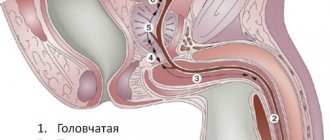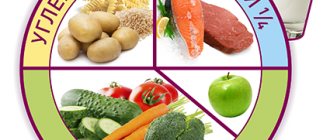Types of constipation during pregnancy
There are 2 main types of constipation: mechanical and nutritional. The mechanical type is associated with difficulty in moving feces through the intestines, that is, its peristaltic function is disrupted. The occurrence of this type of constipation may be associated both with the presence of diseases in the body (kidney failure, hemorrhoids, diabetes mellitus, etc.) and with the use of certain medications. Nutritional problems arise due to changes in eating habits. They can be promoted by: · Eating insufficient amounts of fiber, which leads to a decrease in intestinal motility. · Reducing the amount of food, diet. · Dehydration due to insufficient fluid intake or excess fluid excretion from the body. The main causes of constipation during pregnancy
The period of bearing a child is accompanied by a large number of changes in the body of the expectant mother. That is why the appearance of constipation is often a consequence of an increase in the level of progesterone in a woman’s body.
Due to the increased content of the hormone in the blood, the intestinal muscles relax, which slows down the movement of the food bolus through the digestive tract. An additional physiological factor that contributes to the emergence of a delicate problem is an increase in the size of the uterus. Due to this, pressure on the intestines increases, which leads to difficulty in defecation.
Also, during pregnancy, many women encounter such an unpleasant condition as anemia. For iron deficiency anemia, women are prescribed iron supplements, which have constipation among their side effects.
Causes of occurrence in early pregnancy The main cause of constipation in early pregnancy is a change in hormonal levels in a woman’s body. However, the following can also contribute to this condition: · Early toxicosis, which is accompanied by vomiting. As a result of this, the woman loses a large amount of fluid, which leads to dehydration and hardening of the stool (which is a common symptom of constipation) · Taking iron and calcium supplements. Problem with bowel movements is one of the side effects of these drugs. · Bed rest. If a woman is found to be at risk of miscarriage, she is advised to reduce her level of physical activity. And, as you know, a sedentary lifestyle can cause constipation.
Survey
Since stool retention is often caused by the physiological characteristics of pregnancy or painful conditions associated with gestation, a gastroenterologist examines women with complaints of constipation during pregnancy, subject to constant monitoring and consultations with an obstetrician-gynecologist. A study of the state of the digestive system is always carried out in conjunction with a standard gynecological examination of a pregnant woman.
The diagnostic search should first of all be aimed at excluding natural and pathological causes associated with bearing a child. The woman undergoes a comprehensive examination using only those methods that do not harm the fetus’s body. The most valuable for clarifying the root cause of fecal retention in pregnant women are:
- Ultrasonography
. Ultrasound is the main diagnostic method used during pregnancy, since it is absolutely harmless to the body of the mother and child. Sonography allows you to visualize intestinal loops, detect nonspecific signs of inflammatory processes or distension of a section of the intestine. In the third trimester, the diagnostic value of the method decreases, which is due to a significant increase in the uterus. - Stool analysis
. Standard macroscopic and microscopic analysis of stool makes it possible to suspect the presence of pathologies of both the small and large intestines, which often lead to constipation. To exclude dysbacteriosis, a bacteriological analysis of stool is performed. If organic lesions of the rectum or other parts of the colon are suspected, the Gregersen test for occult blood in the stool is performed. - Sigmoidoscopy
. The method of visual examination of the surface of the rectal mucosa is used to identify enlarged hemorrhoids and cracks, which are often found in pregnant women. In the first trimester, examination using a sigmoidoscope can be supplemented with sigmoidoscopy; in later stages, this manipulation is undesirable due to the risk of impact on the uterus. - Biochemical blood test
. Laboratory tests help to exclude pathologies of the gastrointestinal tract and biliary system. During pregnancy, a standard biochemical analysis is prescribed to measure the level of total protein, free and bound bilirubin, cholesterol, and glucose. According to indications, the concentrations of sex hormones in the blood are determined, the increase of which delays stool during gestation.
In most cases, constipation is eliminated after adjusting the diet.
Causes of occurrence in the second and third trimester of pregnancy
If in the early stages of pregnancy many women feel great, then the closer the date of birth gets, the greater the risk of encountering constipation. This is due to a number of reasons: · The weight of the fetus increases, due to which the pressure on neighboring organs increases. Including on the intestines, which will make emptying it difficult. · After 35 weeks it becomes difficult to lead an active lifestyle. A woman’s motor activity decreases, which contributes to a decrease in intestinal motility. · Limit the amount of fluid consumed. In the later stages of pregnancy, many women experience such an unpleasant phenomenon as edema. And to avoid them, reduce the amount of water consumed. This directly affects the feces - they become hard and dry, and the act of defecation becomes difficult and accompanied by discomfort. · Lack of fiber in food, which is associated with changes in eating habits. At the same time, intestinal motility decreases. · Emotional stress. Fear, awareness of oneself in a new social role, responsibility for the baby’s health - all this affects the nervous system of the expectant mother. Constipation may also occur as a result of emotional discomfort. · Exacerbation of chronic diseases. During pregnancy, all the resources of the expectant mother’s body are aimed at maintaining the pregnancy and bearing the baby. But against the backdrop of a lack of macro- and microelements in the female body, as well as restrictions on taking certain groups of medications, activation of chronic processes is possible.
The main signs of constipation during pregnancy Rare stools are just one of the signs of constipation; in fact, there are many more of them. But it is worth knowing which symptoms indicate the presence of constipation in order to consult a doctor in time: · the absence of bowel movements for two days already indicates constipation; · pain, tightness of the abdomen; · feces are dry, hard; · burning in the rectum; · feeling of incomplete bowel movement; · bloating, flatulence; · irritation in the anus; · appearance of blood in stool; · reduction in the amount of excreted feces; · nausea accompanied by bitterness in the mouth.
Second trimester
These symptoms may become more severe in the second half of pregnancy. The already enlarged fetus begins to put pressure on the intestines, which can make it difficult to function. The nervous system suppresses all contractions not only in the uterus, but also in the intestines, since active contractions of the intestines can lead to contractions of the uterus. Hormonal levels also change. The increased level of the hormone progesterone not only relaxes the muscle cells of the uterus to prevent contractions, but also entails a decrease in natural intestinal motility5. These changes can cause constipation to develop in the second trimester of pregnancy.
How to get rid of constipation during pregnancy
The process of fetal development is a delicate period in the life of every woman; it is worthwhile to approach the treatment of constipation at this time with special care. Most drugs can penetrate the placental barrier and affect the baby’s body, so you should not self-medicate. It is better to entrust your health and the health of your baby to your doctor. As a rule, pregnant women rarely resort to the use of medications. First of all, diet, water balance and physical activity are adjusted. If a set of these measures does not give the desired result, then medications are used.
How to deal with constipation...
One of the main dangers of constipation during pregnancy is that traditional remedies for constipation often pose a threat to women expecting a child. Enemas and many laxatives are prohibited for them during this period.
Only a doctor can choose a safe drug, so you should not self-medicate. However, you should start the fight against constipation with non-drug methods and only if they are ineffective, start choosing a pharmacological remedy.
The role of nutrition in the prevention of constipation during pregnancy
It is generally accepted that during pregnancy a woman should eat for two. On the one hand, this is true - nutrients from the mother’s body enter the baby’s body and give him the opportunity for normal growth and development. On the other hand, some pregnant women take this statement too literally: they do not control their appetite and blindly follow their new food preferences. And in such cases, food becomes not a source of vital energy, but a cause of constant discomfort. Reducing the amount of water and fiber leads to constipation, and excess salt leads to edema.
While carrying a child, many women gain a lot of weight, and after giving birth they cannot lose weight precisely because of the mindset that they need to eat for two.
Complications
Having bowel movements too infrequently can have serious consequences. This can contribute to the development or exacerbation of diverticular disease of the intestine, hemorrhoids, and the formation of anal fissures. Overdistension of the colon due to the accumulation of feces makes it even more difficult to have a timely bowel movement. The consequence of chronic constipation can be the formation of oncological processes in the intestine, due to changes in the functioning of intestinal cells, malabsorption, the development of dysbiosis and excessive growth of its own and pathogenic microflora, activation of putrefaction processes, an increase in nitrogenous wastes that enter the blood and cause chronic intoxication. Therefore, constipation must be dealt with promptly.
Normal weight gain during pregnancy
On average, during 40 weeks of pregnancy, weight gain is 10-14 kilograms. A more accurate figure is calculated by the obstetrician-gynecologist with whom the woman is registered.
In the first and second trimester, a woman on average gains 250-300 grams of weight per week. In the third, the rate of weight gain increases to 400 grams, as toxicosis recedes and the fetus increases significantly in weight. An increase in body weight above these figures during gestation is associated with incorrect eating habits and the attitude that you need to eat for two. Excessive weight gain can have a negative impact on the body of the expectant mother and baby, so you should carefully monitor your diet and engage in moderate physical activity.
Sources
- Bashir K., Bakhsh ZK., Gad HA., Bashir MT., Elmoheen A. An Unusual Case of Thyroid Storm Masquerading as an Intestinal Obstruction in a Patient With Malrotation of the Gut. // Cureus - 2021 - Vol13 - N3 - p.e13948; PMID:33880285
- Mashao U., Ekosse GI., Odiyo J., Bukalo N. Geophagic practice in Mashau Village, Limpopo Province, South Africa. // Heliyon - 2021 - Vol7 - N3 - p.e06497; PMID:33817373
- Cattani L., Neefs L., Verbakel JY., Bosteels J., Deprest J. Obstetric risk factors for anorectal dysfunction after delivery: a systematic review and meta-analysis. // Int Urogynecol J - 2021 - Vol - NNULL - p.; PMID:33787952
- Abu MA., Borhan AS., Abdul Karim AK., Ahmad MF., Mahdy ZA. Comparison between Iberet Folic® and Zincofer® in treatment of iron deficiency anemia in pregnancy. // Horm Mol Biol Clin Investig - 2020 - Vol42 - N1 - p.49-56; PMID:33781008
- Gümüşsoy S., Öztürk R., Kavlak O., Hortu I., Yeniel AÖ. Investigating Pelvic Floor Muscle Strength in Women of Reproductive Age and Factors Affecting It. // Clin Nurs Res - 2021 - Vol - NNULL - p.10547738211000350; PMID:33719590
- Krčevski Škvarč N., Morlion B., Vowles KE., Bannister K., Buchsner E., Casale R., Chenot JF., Chumbley G., Drewes AM., Dom G., Jutila L., O'Brien T. , Pogatzki-Zahn E., Rakusa M., Suarez-Serrano C., Tölle T., Häuser W. European clinical practice recommendations on opioids for chronic noncancer pain - Part 2: Special situations. // Eur J Pain - 2021 - Vol25 - N5 - p.969-985; PMID:33655678
- Parés D., Molinet C., Troya J., Altimira L., Lopez-Negre JL., Martinez-Franco E. Influence of Bowel Habit and Hormonal Changes on the Development of Hemorrhoidal Disease During Pregnancy and Post Delivery Period: A Prospective Cohort Study. // Dis Colon Rectum - 2021 - Vol - NNULL - p.; PMID:33591046
- Binkova A., Uebelhart M., Dällenbach P., Boulvain M., Gayet-Ageron A., Abdulcadir J. A cross-sectional study on pelvic floor symptoms in women living with Female Genital Mutilation/Cutting. // Reprod Health - 2021 - Vol18 - N1 - p.39; PMID:33581732
Dietary rules for a pregnant woman with constipation
First of all, you need to formulate the right nutrition system after consulting with your doctor. You should exclude fried foods from your diet or sharply limit their consumption. It is worth giving preference to products that were prepared by baking or steaming. The number of meals should be 5-6 times a day. Small portions will prevent you from overeating, and frequent eating will prevent the feeling of hunger. You should definitely include fresh fruits and vegetables in your daily diet to enrich your body with vitamins and fiber.
You should also pay attention to maintaining water balance. A sufficient supply of fluid to the body allows not only to improve the general condition, but also to get rid of constipation. Foods that should be excluded from a pregnant woman's diet These foods cause bloating and flatulence, which lead to discomfort. It is for this reason that it is recommended to limit their consumption during the period of bearing a child: · legumes (peas, beans, etc.); · cabbage; · juices (apple and grape); · chocolate, candies; · bread made from premium flour; · rich pastries; · meat broths; · fatty meats; · canned foods; · herbs and spices.
Treatment
Diet helps cope with constipation. As much fiber as possible should enter the intestines. It is not digested, but only swells, increasing the volume of feces and promoting bowel movement. Therefore, your diet should include carrots, cucumbers, tomatoes, beets, zucchini, pumpkin, apples, as well as wholemeal bread and dried fruits. Often fermented milk products have a good laxative effect: kefir, yogurt, as well as kvass and sour cabbage soup. Vegetable fats are useful: when broken down, they form fatty acids that stimulate peristalsis.
It is better to use prunes as an infusion: pour 100 g of fruit with two glasses of boiling water, add a little sugar, cover with a lid and leave for 10-12 hours. It's better to do this in the evening. The next day, drink half a glass of the infusion before meals, and eat the plums. Another remedy for constipation is to drink a glass of cold water on an empty stomach. You can add a spoon of honey to it.
You should not get carried away with strong tea, black coffee, cocoa, chocolate, white bread, flour and slimy soups, semolina, blueberries. All these products, as well as dry food, have a fixing effect.
In case of severe bloating, it is allowed to take infusions of chamomile flowers, mint leaves, caraway seeds, dill, as well as carbolene (activated carbon). But only in quantities recommended by your doctor.
You should also try not to stand for long periods of time, do not lift weights, and do gymnastics to strengthen the pelvic floor muscles. By the way, physical exercise will enhance intestinal motility.
Constipation during pregnancy using osteopathic methods
Another way to get rid of the problem is to see an osteopath. It is absolutely safe for pregnant women, and at the same time helps to get rid of the cause of constipation through manual intervention. Osteopathic methods will be effective in the presence of the following reasons: · Violations of the mechanics of the spinal column due to the heavy load on it during the period of bearing a child. · Excessive tension in the pelvic and lumbar region, due to pressure from the fetus on nearby organs and tissues. · Mechanical stool disorders. Thanks to the gentle effects, osteopathic methods allow you to normalize blood flow and lymph circulation, which allows you to activate the processes of removing food debris from the body.
An osteopath relieves tension and tension, which also has a beneficial effect not only locally, but also on the body as a whole.
At the Quality of Life clinic, appointments are conducted by specialists who, depending on the stage of pregnancy, will suggest a set of exercises. It will increase motor activity, which is necessary to improve the quality of peristalsis, prevent or treat problems with stool. Exercises selected by a qualified exercise therapy specialist are absolutely safe. For each trimester, you can choose the most suitable complex that will help solve the problem.
Use of medications for constipation If all of the above methods do not help get rid of the problem, resort to treatment with medications.
Under no circumstances should you resort to using them on your own; a preliminary consultation with your gynecologist is required.
...using folk remedies
Before using any folk recipe, we also advise you to consult with a specialist in order to exclude possible negative reactions of the body to certain products.
The safest and most universal folk remedy for constipation for pregnant women is a glass of warm water with honey. In addition to this, we can offer several more recipes:
- a decoction of oatmeal with chopped beets and prunes;
- 100 g of raisins and dried apricots mixed with honey (take 2 teaspoons before bedtime);
- herbal sedatives for cramps that may accompany constipation during pregnancy.









